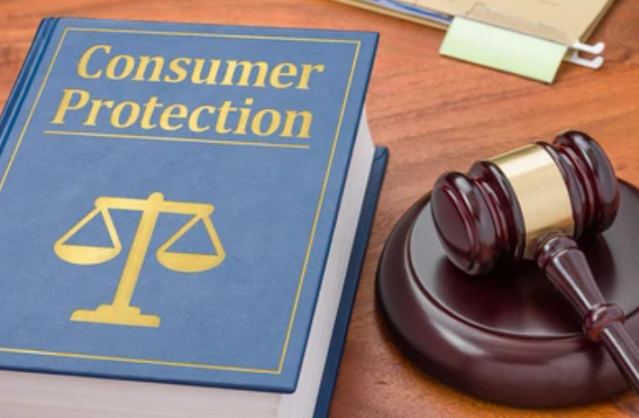Consumer Protection Laws: State vs. Federal Regulations
Consumer Protection Laws: State vs. Federal Regulations
Consumer protection laws play a crucial role in safeguarding the rights and interests of consumers. These laws are designed to ensure fair trade practices, protect consumers from fraudulent or deceptive business practices, and provide remedies in case of consumer harm. Consumer protection laws can be enacted at both the state and federal levels, and understanding the difference between state and federal regulations is important in comprehending the overall legal landscape. Here's a detailed explanation of consumer protection laws at the state and federal levels:
Federal Consumer Protection Laws:
Federal consumer protection laws are enacted by the national government and apply uniformly across the entire country. The primary federal agency responsible for enforcing consumer protection laws is the Federal Trade Commission (FTC). Some key federal consumer protection laws include:
a. Federal Trade Commission Act (FTCA):
The FTCA prohibits unfair or deceptive trade practices and gives the FTC the authority to enforce various consumer protection laws.
b. Fair Credit Reporting Act (FCRA):
The FCRA regulates the collection, use, and disclosure of consumer credit information by credit reporting agencies. It provides consumers with rights related to accessing and correcting their credit reports.
c. Truth in Lending Act (TILA):
The TILA ensures that consumers receive accurate and transparent information about the terms and costs of credit, including annual percentage rates (APRs) and finance charges.
d. Fair Debt Collection Practices Act (FDCPA):
The FDCPA sets guidelines for debt collectors, prohibiting abusive and deceptive practices during debt collection activities.
e. Consumer Product Safety Act (CPSA):
The CPSA establishes safety standards for consumer products and empowers the Consumer Product Safety Commission (CPSC) to recall unsafe products and protect consumers from potential hazards.
f. Telephone Consumer Protection Act (TCPA):
The TCPA regulates telemarketing and the use of automated dialing systems, fax machines, and pre-recorded messages, aiming to protect consumers from unwanted communications.
These federal laws provide a baseline of protection for consumers nationwide. The FTC and other federal agencies enforce these laws and take legal action against businesses that violate them.
State Consumer Protection Laws:
In addition to federal laws, individual states also enact their own consumer protection laws. These state laws can provide additional protections beyond what is offered by federal regulations. State consumer protection agencies, attorneys general, or consumer affairs departments are responsible for enforcing these laws. State laws may cover a wide range of consumer issues, including:
a. Consumer Fraud and Deceptive Trade Practices:
State laws typically prohibit deceptive trade practices, false advertising, and unfair business practices. These laws often provide remedies for consumers who have been harmed by fraudulent or misleading business practices.
b. Lemon Laws:
State lemon laws protect consumers who purchase defective vehicles by providing remedies such as refunds, replacements, or repairs.
c. Homeowner Protection Laws:
States may have specific laws that protect homeowners from predatory lending practices, foreclosure abuses, or unfair mortgage terms.
d. Retail Sales and Return Policies:
Some states have laws that regulate retail sales and return policies, including requirements for product warranties and refund policies.
e. Landlord-Tenant Laws:
State laws govern the rights and responsibilities of landlords and tenants, ensuring fair treatment, proper disclosure, and habitable living conditions.
It's important to note that state laws can vary significantly from one state to another, and consumers should familiarize themselves with the specific consumer protection laws in their state of residence.
Relationship Between State and Federal Laws:
State consumer protection laws are generally complementary to federal laws. If a state law offers greater protection or remedies than federal law, the state law will prevail. However, state laws cannot contradict or undermine federal laws. In cases where federal and state laws overlap, consumers are typically entitled to the broader protections provided by either law.
Remedies and Enforcement:
Both federal and state consumer protection laws provide remedies for consumers who have been harmed by unfair or deceptive practices. Remedies can include monetary compensation, injunctions against further unlawful practices, and other forms of relief. Enforcement of consumer protection laws can be carried out through government agencies, such as the FTC at the federal level or state attorneys general at the state level. Additionally, consumers themselves can take legal action by filing lawsuits against businesses that violate their rights.
In summary, consumer protection laws exist at both the state and federal levels to safeguard consumers from unfair or deceptive practices. Federal laws set minimum standards that apply nationwide, enforced by agencies like the FTC. State laws provide additional protections and remedies, tailored to the specific needs of each state. It's important for consumers to be aware of their rights and the applicable laws in their jurisdiction to ensure their rights are protected when engaging in consumer transactions.















No comments